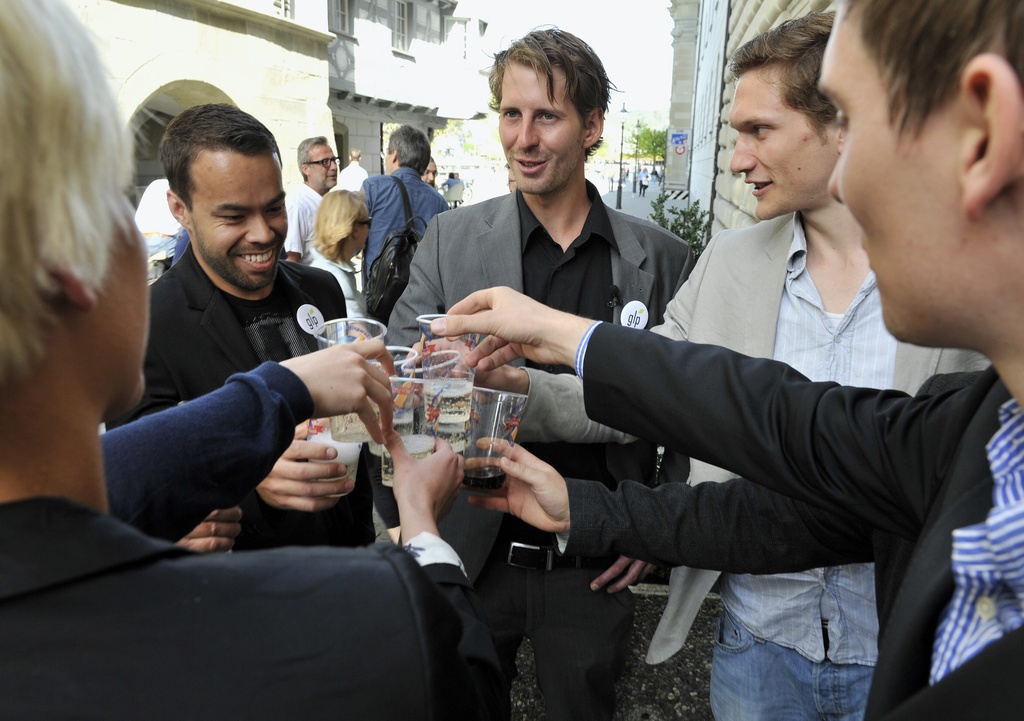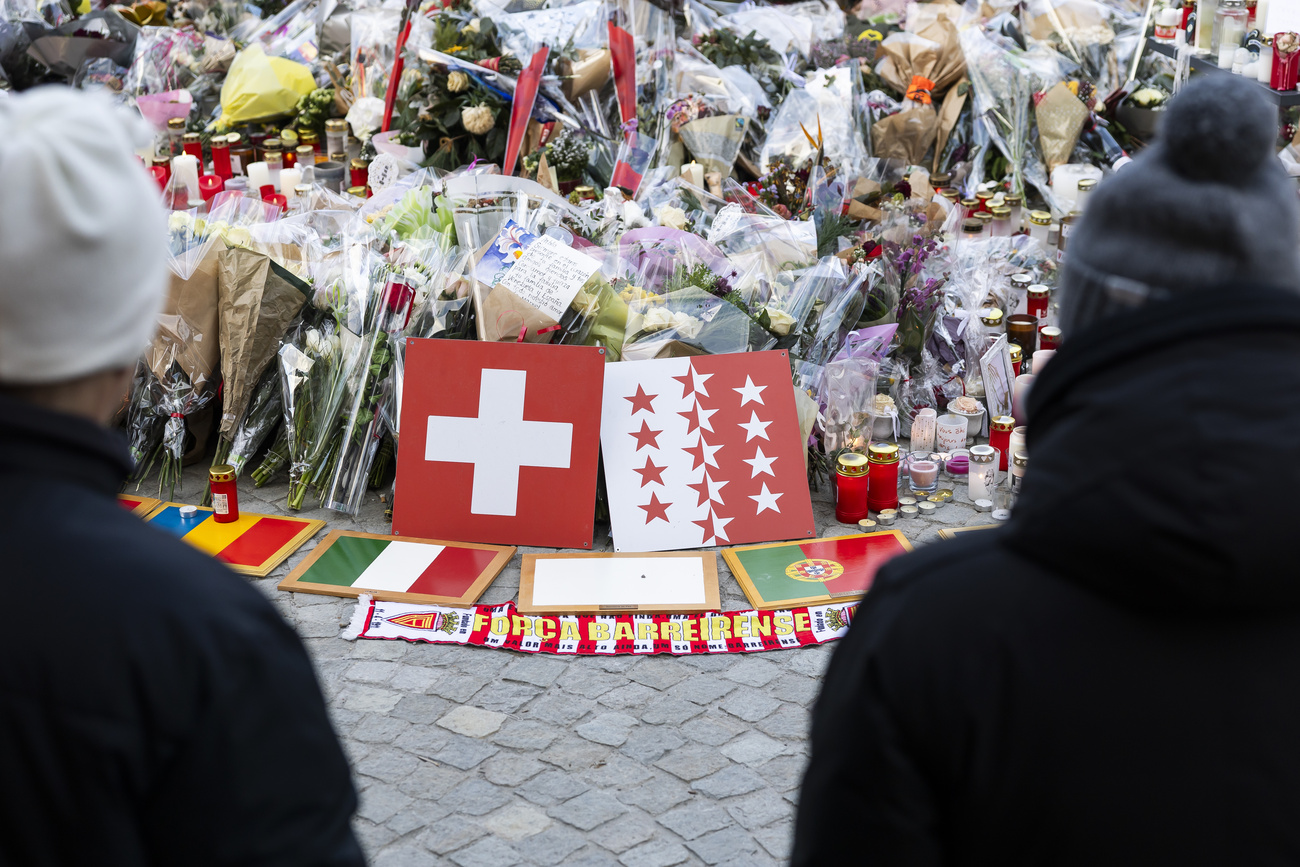
Fukushima fallout spreads to Swiss politics

One month on from Japan’s nuclear disaster, the “Fukushima effect” on Switzerland’s political parties has been limited.
But political scientist Georg Lutz at Lausanne University says the accident in the wake of a powerful earthquake in mid-March will change the campaign ahead of October’s elections to the federal parliament.
Results from four recent elections to cantonal parliaments show the Liberal Greens among the clear winners. The group currently has five seats in the federal parliament and is expected to do well, possibly at the expense of traditional centre-right Radicals and Christian Democrats.
For her part the energy minister, Doris Leuthard, ordered a safety review of the country’s five nuclear power reactors following the accident, and suspended the process for the construction of new plants.
By June the government hopes to reassess the situation while parliament is likely to debate the issue in its summer session.
swissinfo.ch: To what extent has the nuclear accident in Japan had an impact on party politics in Switzerland?
Georg Lutz: It is a mixed picture. The old Green Party has not made major gains. Instead the Liberal Greens have done well in several cantons. In other words: there is no general movement to the left, but to the centre of the political spectrum.
Also turnout was below average in the most recent elections. This is not unusual as they are considered less interesting for many citizens. Citizens know that elections do not determine the policy agenda as they do in other countries.
Voters also know that at some point they will have a say on policy issues in a separate ballot.
Generally speaking regional factors determine the outcome of elections even more than an event such as Fukushima.
swissinfo.ch: Which party has been most convincing in its response to the nuclear accident in Japan?
G.L.: The Greens and the Social Democrats have been the most coherent in their policies. They have been calling for a phase-out of nuclear power for years. And of course they are stressing this point now.
The centre-right parties are visibly struggling since their position on nuclear issues has been to push for new atomic power stations. Their energy policy has collapsed and they are forced to re-write their energy policies. Their position often came across as scarcely convincing.
swissinfo.ch: The Liberal Greens emerged as the main beneficiaries of the recent elections. Why were they more successful than the anti-nuclear champions, the Green Party or the Social Democrats?
G.L.: Environmental issues appeal to an electorate beyond the more left-leaning Greens and Social Democrats.
But the old centre-right parties – Christian Democrats and the Radicals – have been badly ignoring anti-nuclear concerns. Their supporters have now been given an alternative in the Liberal Greens.
swissinfo.ch: Did the defeated parties have to pay the price for their perceived close links with the nuclear power industry?
G.L.: That’s too simplistic as an explanation. There is not such a causal link. The problem is more fundamental.
These parties in the past did well in their strongholds, but they failed to find new supporters also because they no longer have clear and strong messages for their grassroots.
An additional difficulty, in the case of the Radical Party, was its U-turn over nuclear power about ten days ago. The big problem is the perception of the party as a lobby organisation of all sorts of business interests – banking, pharma, energy.
swissinfo.ch: Why did the rightwing Swiss People’s Party not suffer a setback in the cantonal elections although it tried to deny Fukushima even a symbolic impact?
G.L.: Probably because its voters are mainly concerned about immigration, asylum seekers and Switzerland’s independence of the European Union. These are the issues the party has been focusing on and it will continue to exploit in the run-up to the elections.
swissinfo.ch: How will Fukushima influence October’s elections to Switzerland’s federal parliament?
G.L.: The nuclear incident has changed the political dynamics a lot. What looked to be a campaign mainly on foreigners and the EU is now likely to be marked by issues over nuclear power and energy policies.
The nuclear issue might lose some of its urgency by autumn, but it’s hard to believe that it will leave the political agenda given the magnitude of the disaster in Japan.
swissinfo.ch: Could anti-nuclear grassroots movements possibly be the main beneficiaries of the current political debate in Switzerland?
G.L.: Such movements could indeed see a revival besides some political parties. Especially if the energy companies push for a swift return to a business-as-normal policy by promoting nuclear energy as a viable, reasonable and cheap source.
A strengthening of the movements is even more likely if the traditional centre-right parties and the rightwing move back to their old positions on nuclear power and an open debate remains deadlocked.
The Liberal Green Party, a split-off from the Greens, won up to 5.9% of the vote in recent cantonal elections in Zurich, Lucerne, Basel-Country, but it was not standing in Ticino.
The Greens and the Social Democrats stagnated or made minor gains in three cantons. In Ticino the Greens won an additional 3.4%, while the Social Democrats lost 3.9% compared with 2007.
The Radicals and the Christian Democrats saw their share of the vote drop by up to 5.7% and 6% respectively.
The result of the Swiss People’s Party ranged from +3.2% to -0.9%.
The Greens have launched an initiative calling for an opt-out from nuclear energy.
The Liberal Greens are mooting the introduction of a tax on non-renewable energy.
The Social Democrats are campaigning for a proposal to boost environmentally-friendly energy.
The Christian Democrats have called for a review of the government’s energy policy and support a halt to the planning of new nuclear power plants.
The Radicals initially refused to reconsider their energy policy, but now appear ready to do so.
The Swiss People’s Party says the nuclear disaster has no bearing on Switzerland, making a policy change unnecessary.

In compliance with the JTI standards
More: SWI swissinfo.ch certified by the Journalism Trust Initiative































You can find an overview of ongoing debates with our journalists here . Please join us!
If you want to start a conversation about a topic raised in this article or want to report factual errors, email us at english@swissinfo.ch.